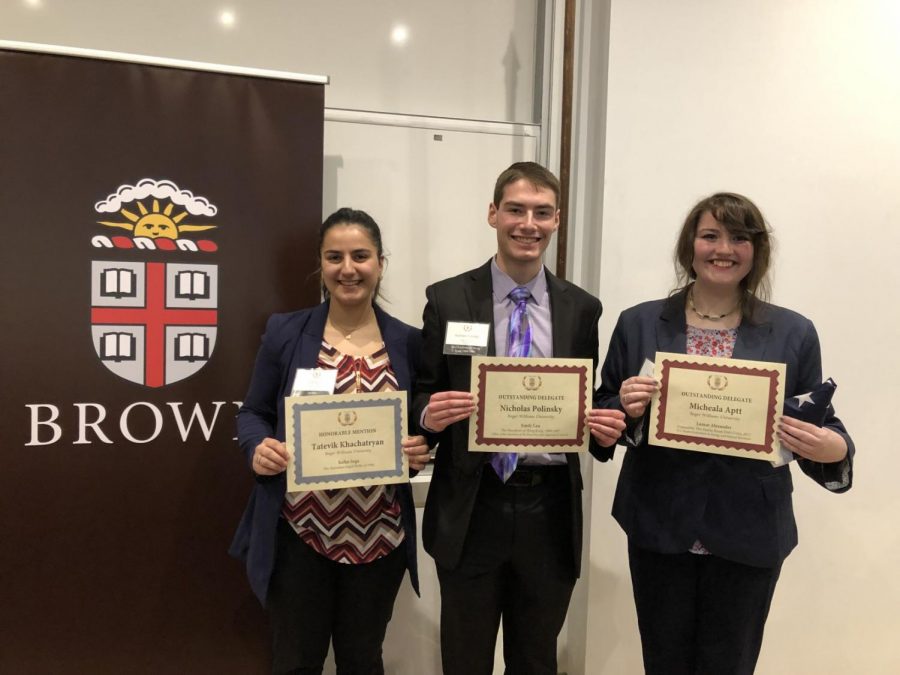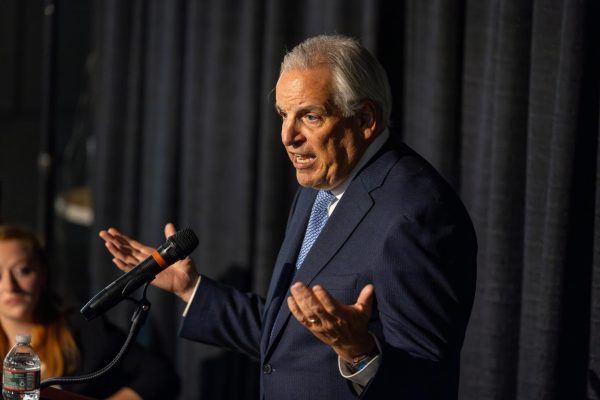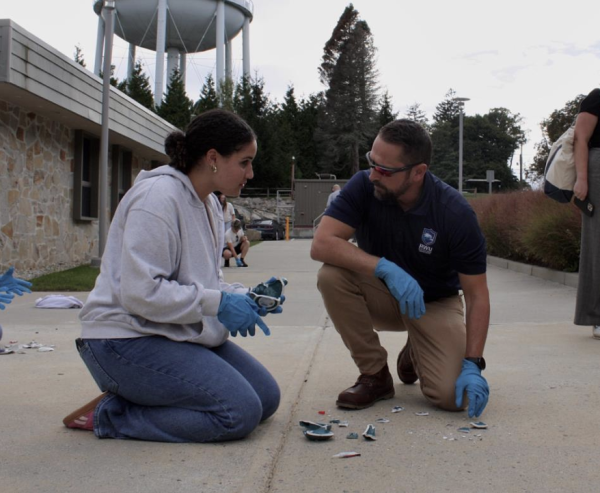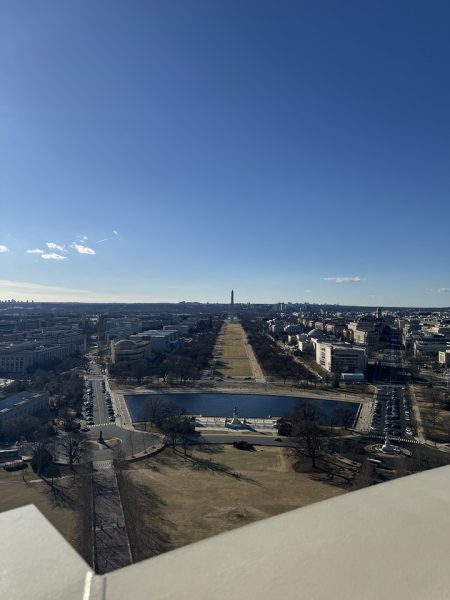Negotiating strategies to determine a country’s fate: International Relations Organization takes home three awards from crisis simulation
Dealing with any kind of crisis can be incredibly stressful, especially when the fate of a nation is on the line.
The International Relations Organization (IRO) attended the Brown University Crisis Simulation from March 1 through March 3. They left the event with three awards given to three different students.
Tatevik Khachatryan was awarded Honorable Mention for her representation of Keiho Soga in the Hawaiian Sugar Strike of 1946 committee. Michaela Aptt was awarded Outstanding Delegate for her representation of Lamar Alexander in the Unpayable: The Puerto Rican Debt Crisis committee. Nicholas Polinsky was awarded Outstanding Delegate for his representation of Emily Lau on the Handover of Hong Kong committee.
“These awards reflect the hard work, research, quick analytical reasoning and diplomatic skills of the delegation. With the effort that students put in, I am surprised we have not won more awards this year,” said Joseph Roberts, IRO’s faculty adviser. “I am very proud of the delegation and the eBoard; their efforts have really paid off.”
The Brown University Crisis Simulation is an annual event where college students are put into crisis situations that they must resolve, as professionals do in the real world.
“During these ‘models’ each University, or delegation, if you will, is assigned either a country or historical/real-life person to represent on the committee,” said Sarah Wood, senior political science and economics major and IRO’s president. “The delegation (either one or two people from each university) will then represent the country/person, to the best of their ability, while also working with all other delegations in the room to come together to solve the issue at hand.”
The participants must represent their assigned country or person accurately during the simulation, and they are judged on how well they are able to do this. Delegates must be active participants in solving the crisis in order to qualify for any awards. RWU has not won any awards in the past several years, but this year they brought back three.
“During this past conference, we sent six [RWU student] delegates to sit on six different crisis committees. Thus, half of our delegates were able to win awards within their committees,” Wood said.
She hopes IRO will grow and be able to attend more conferences in the future. She believes that being able to become successful in solving a crisis is a very rewarding experience. The club promotes political awareness, public speaking and debate.
Increasing the amount of conferences that the club attends would also help increase the number of students that can gain the experience of working with others to solve important issues.
“This is probably the most competitive conference we attend each year and I hope that the awards from Brown inspire a similar performance in D.C.,” Roberts said. “We are representing Algeria, and assuming the logistics work out, we will have a visit to the Algerian Embassy for final preparations.”
Rachel Dvareckas was a 2022 RWU journalism graduate who spent four years dedicated to The Hawks’ Herald. She currently takes on more creative roles...






